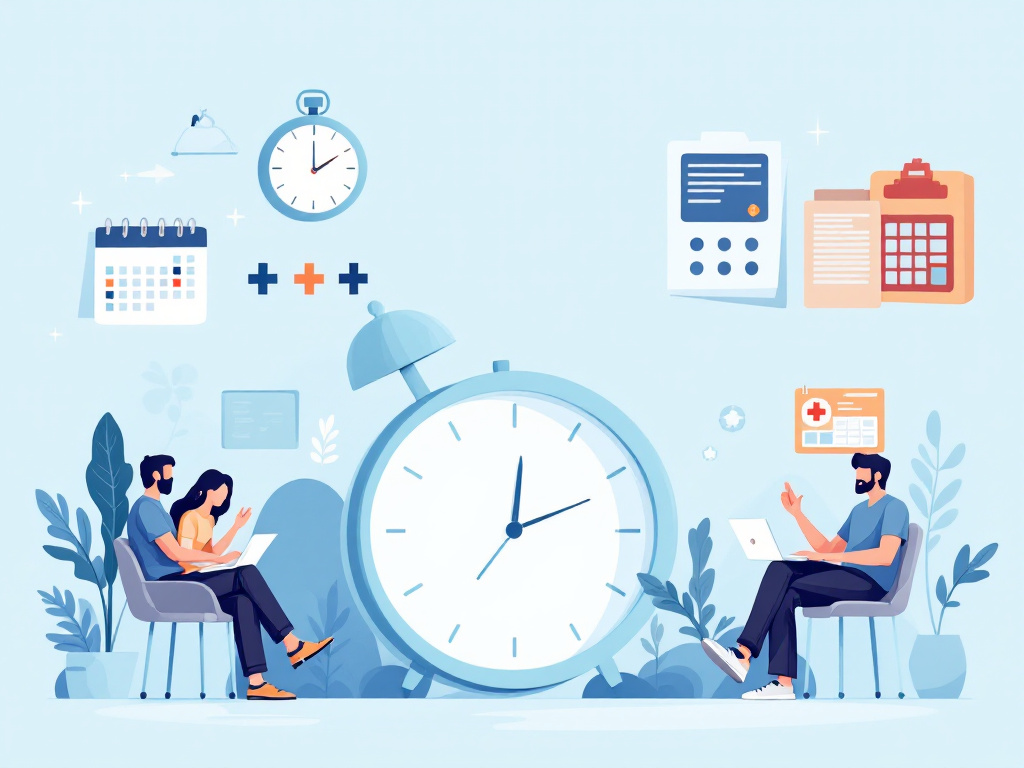Understanding Men’s Mental Health
Disparities in Mental Health Treatment
Men’s mental health encompasses their emotional, psychological, and social well-being. Despite the significance of mental health treatment, men are less likely to seek help compared to women. According to the Centers for Disease Control and Prevention, men have experienced disparities in mental health treatment. This reluctance to seek help contributes to alarming statistics; men are more than 3.5 times more likely to die by suicide than women, often due to choosing more lethal means, such as firearms Medical News Today.
The numbers are concerning. Only 1 in 3 men take medication for feelings of depression or anxiety, while just 1 in 4 consult a mental health professional. These disparities highlight a need for proactive measures in men’s mental health rehab, making it essential for facilities like Recovery Bay Center to focus on tailored approaches that address the unique needs of men.
| Statistic | Value |
|---|---|
| Men more likely to die from suicide than women | 3.5 times |
| Men taking medication for depression/anxiety | 1 in 3 |
| Men speaking to mental health professionals | 1 in 4 |
Signs of Mental Health Disorders in Men
Recognizing the signs of mental health disorders in men is crucial for initiating timely intervention. Symptoms can often be subtle or misrepresented, making it important to remain vigilant. Key indicators can include:
- Changes in behavior: Increased irritability, anger, or aggression.
- Emotional shifts: Persistent feelings of sadness, anxiety, or hopelessness.
- Physical symptoms: Fatigue, sleep disturbances, or changes in appetite.
- Social withdrawal: Avoiding social interactions once enjoyed.
- Substance use: Relying on drugs or alcohol to cope with stress or emotional pain.
Understanding these signs and symptoms prompts discussion and can lead to seeking professional help. Recovery Bay Center focuses on providing comprehensive support, which may include individualized therapy plans, group therapy, and holistic treatments aimed at addressing both mental health and potential substance use disorders. For more information on the specific programs we offer, such as dual diagnosis treatment and residential addiction treatment, visit our website.
Men face distinct barriers in accessing mental health care, particularly rooted in gender norms and societal expectations. By fostering an environment that encourages open dialogue around mental health, we can motivate men to engage in treatment and improve their overall well-being. At Recovery Bay Center, we are committed to addressing these unique challenges and providing a safe, supportive space for recovery.
Cultural Influences on Men’s Mental Health
Mental health in men is deeply influenced by cultural factors that shape their behaviors and perceptions. Understanding these influences is crucial in promoting effective rehabilitation and support for men facing mental health challenges.
Gender Norms and Mental Health Stigma
Traditional masculinity norms often discourage men from seeking help for mental health issues, creating a significant barrier to treatment. Stigma surrounding mental health remains a powerful deterrent for men seeking assistance. Research shows that men who conform more closely to traditional masculinity norms are less likely to reach out for help, leading to a cycle of untreated mental health disorders (NCBI Bookshelf).
The official statistics paint a concerning picture: over 6 million men in the U.S. report suffering from depression each year. However, studies indicate that the rate could be much higher, as men may not be accurately represented due to stigma and failure to seek help. Notably, a study in JAMA Psychiatry reveals that around 30.6% of American males experience depression at some point in their lives, indicating that traditional norms may prevent many men from acknowledging their struggles and seeking necessary treatment (Health Affiliates Maine).
| Statistic | Percentage |
|---|---|
| Men suffering from depression officially reported | >6 million |
| Men experiencing depression in their lifetime when using a gender-inclusive scale | 30.6% |
| Male depression diagnosis rate in Maine | 16% |
Impact of Societal Expectations
Societal expectations often place pressure on men to uphold a self-reliant and stoic image, which can limit their ability to effectively cope with mental health issues. In various cultures, including the U.S. and the Russian Federation, men are more likely to turn to unhealthy coping mechanisms, such as substance use, rather than seeking professional help.
In Maine, for instance, females are diagnosed with depression at 25.9%, while males are diagnosed at a significantly lower rate of 16%. This discrepancy is partly due to the male population’s reluctance to seek medical help, resulting in underdiagnosis and undertreatment of mental health conditions (Health Affiliates Maine).
By addressing these cultural influences, we can foster an environment that encourages men to pursue mental health treatment. We at Recovery Bay Center provide comprehensive support tailored to men’s needs, emphasizing the importance of overcoming social stigma and encouraging open dialogue about mental health. For further assistance beyond rehab, our programs, such as dual diagnosis treatment, integrate mental health care with substance use disorder treatment to support overall recovery and wellness.
Seeking Help for Men’s Mental Health
Barriers to Mental Health Support
Despite the pressing need for effective mental health care, many men encounter significant barriers when seeking support. According to the Centers for Disease Control and Prevention, men are considerably less likely to have received mental health treatment in the past year compared to women, despite the alarming reality that men are more than 3.5 times more likely to die by suicide than women due to factors such as using more lethal means.
The three primary barriers men often face include:
Gender Norms: Traditional gender roles can discourage men from expressing vulnerability or seeking help. This societal expectation promotes the idea that men should be self-reliant and emotionally resilient, which can hinder their willingness to acknowledge mental health issues.
Lack of Information and Community: Many men may not have access to reliable information regarding mental health resources or what to expect from therapy. In some cases, they may not be aware of local support networks or professionals who specialize in men’s mental health care.
Perceived Value of Support: There is often a perception among men that mental health support is less valuable or unnecessary. They may view it as a sign of weakness, preventing them from exploring professional help, which, in many cases, compromises their well-being (AbleTo).
Understanding these barriers is essential in addressing them effectively. Recovery Bay Center aims to create an environment that encourages men to overcome these obstacles and engage in the healing process.
Importance of Professional Assistance
Seeking professional assistance is crucial for men grappling with mental health issues. The symptoms of these disorders can significantly impact not only individual well-being but also relationships and daily functioning. Professional help can guide men through challenges and provide tailored strategies to manage symptoms effectively.
At Recovery Bay Center, we emphasize the importance of evidence-based treatment approaches, including dual diagnosis treatment and individual therapy addiction. Engaging with qualified professionals ensures that the care provided is both safe and effective.
The benefits of professional assistance include:
| Benefit | Description |
|---|---|
| Expert Guidance | Access to trained professionals who understand the nuances of men’s mental health issues. |
| Customized Treatment | Tailored plans that address individual needs and conditions, including co-occurring disorders. |
| Supportive Environment | A space that fosters openness and encourages men to express their feelings without judgment. |
| Skill Development | Tools and techniques for coping, stress management, and improving emotional health. |
Ultimately, we recognize that initiating the journey towards recovery may seem daunting. However, professionals can provide the support and expertise needed to foster a successful recovery process. Our commitment at Recovery Bay Center is to offer high-quality, comprehensive care for those seeking men’s mental health rehab, ensuring that each individual receives the help they require to thrive.
Substance Use Disorders in Men
Addressing substance use disorders in men often involves recognizing the interplay between mental health and addiction. Many individuals may struggle with co-occurring mental health issues alongside their substance use, which can complicate the recovery process.
Co-occurring Mental Health and Substance Use Disorders
Approximately half of the individuals with severe mental disorders also experience a substance use disorder. This co-occurrence requires integrated care that addresses both mental health and addiction issues effectively (NCBI – PMC). At Recovery Bay Center, we focus on providing tailored treatment plans through our dual diagnosis treatment program. This ensures that both facets of a person’s health are treated synchronously, improving the likelihood of a successful recovery.
Key Statistics
| Statistic | Value |
|---|---|
| Percentage of individuals with severe mental disorders who also have a substance use disorder | 50% |
| Successful self-management strategies used by men to maintain sobriety | Building a community, engaging in activities, monitoring attitudes |
| Role of support groups in maintaining sobriety | Engaging in Alcoholics Anonymous meetings |
Strategies for Maintaining Sobriety
Maintaining sobriety is a complex journey that involves various strategies to rebuild and support one’s recovery. Based on recent studies, successful men with co-occurring disorders often utilized several self-management techniques. These included:
- Building a Supportive Community: Establishing strong networks, such as involving families and peers, is crucial for emotional support.
- Engaging in Productive Activities: Finding healthy hobbies and interests that distract from substance use can reduce the risk of relapse.
- Monitoring Attitudes: Developing self-awareness about personal attitudes toward substances and mental health can foster proactive management of triggers.
Additionally, therapies such as group counseling, and participation in structured programs can play a critical role in supporting recovery. At Recovery Bay Center, our approach includes a range of individual therapy addiction options, as well as group program addiction modalities designed to enhance accountability and community engagement.
Studies indicate that participants who engage in recovery support meetings, like Alcoholics Anonymous, significantly benefit from skill-building and relapse prevention strategies (NCBI – PMC). Our programs align with these findings, ensuring that clients have access to comprehensive support as they navigate their recovery journey.
For those needing additional help, our aftercare planning program provides ongoing support to reduce the chances of relapse and promotes sustained recovery. At Recovery Bay Center, we believe that specialized care tailored to men’s mental health rehab needs allows for a stronger recovery path.
Rehab Programs for Men
Rehabilitation programs specifically designed for men play a crucial role in addressing the unique challenges associated with men’s mental health and substance use disorders. At Recovery Bay Center, we emphasize the importance of gender-specific rehab, which can significantly enhance the recovery experience.
Benefits of Gender-Specific Rehab
Men’s rehab programs provide high-quality care tailored to male patients, recognizing their unique situations and societal expectations. These programs cultivate a safe and judgment-free environment, allowing men to be vulnerable, express emotions, and collaborate with others who share similar experiences.
| Benefit | Description |
|---|---|
| Safe Environment | Men can openly discuss their feelings without fear of judgment or stigma. |
| Peer Support | Shared experiences foster connection and support among participants. |
| Focused Treatment | Programs address issues such as abuse and societal pressures specific to men. |
| Enhanced Self-Esteem | Aimed at building confidence and a positive mindset for better recovery. |
Men often face difficulty in admitting they have a drug or alcohol addiction problem due to societal pressures to appear strong. Gender-specific rehab empowers men to explore these issues in depth, promoting honesty and self-reflection, critical components necessary for effective recovery. Our goal at Recovery Bay Center is to help men achieve lifelong sobriety by offering evidence-based treatment programs that support individual needs and circumstances. For more details, check our article on dual diagnosis treatment.
Addressing Challenges in Recovery
Every individual encounters unique challenges in the recovery process, particularly men who may experience differing pressures than women. Men’s rehab programs are designed to tackle these challenges head-on. Here are a few ways in which we address recovery obstacles:
- Building Healthy Support Networks: Male-focused programs encourage the formation of support groups, helping participants to connect and rely on one another throughout their journey.
- Coping with Societal Expectations: Programs help men confront and dismantle societal norms that deter them from seeking help, such as the misconception that vulnerability equates to weakness.
- Focus on Emotional Expression: By providing a safe space for emotional expression, we facilitate discussions surrounding uncomfortable topics, such as trauma or assault, which men often find difficult to address.
- Creating Trust and Honesty: Our programs establish a culture of trust where participants can freely share their experiences, allowing for deeper healing and understanding.
Studies indicate that men in recovery benefit from more social support at home compared to women, but the factors influencing relapse differ between genders. This underscores the necessity of tailored treatment approaches that consider these specific dynamics.
At Recovery Bay Center, we strive to address these needs comprehensively, ensuring that each participant receives the support they require for sustained recovery. This commitment is evident in all aspects of our residential addiction treatment programs, emphasizing ongoing care and community engagement essential for lasting success.
Choosing Recovery Bay Center
At Recovery Bay Center, we understand the unique challenges faced by men seeking help for mental health and substance use issues. That’s why we are dedicated to providing tailored treatment options that cater to the specific needs of our clients. Our approach ensures that every individual receives the best possible care during their recovery journey.
Customized Treatment Approaches
Our commitment to customized treatment is evident in the wide range of programs we offer. This includes inpatient drug rehab, mental health treatment addiction, and specialized programs for co-occurring disorders. Approximately half of people with severe mental disorders also suffer from a substance use disorder, making it crucial to address both areas during treatment (NCBI – PMC).
| Treatment Type | Description |
|---|---|
| Individual Therapy | One-on-one sessions to explore personal challenges and strengths. |
| Group Counseling | Peer support sessions to foster community and shared experiences. |
| Holistic Therapy | Mindfulness, yoga, and meditation to promote overall well-being. |
| Structured Life Skills Training | Tools for managing daily life post-recovery. |
| Medical Detox | Safe withdrawal management tailored to individual needs. |
Successful treatment for drug and alcohol addiction requires continual evaluations and evidence-based therapies delivered by skilled professionals (American Addiction Centers). At Recovery Bay, our team is dedicated to enhancing recovery outcomes through ongoing assessments and modifications to treatment plans.
Focus on Long-Term Recovery
We emphasize the importance of long-term recovery. Studies show that less than 43% of individuals who enter treatment for drug and alcohol use complete it (American Addiction Centers). This informs our commitment to comprehensive aftercare planning and continuous support throughout the recovery process.
Our long-term recovery strategies include:
- Aftercare planning program to prepare clients for life after rehab.
- Alumni support program to maintain connections and accountability post-treatment.
- Ongoing access to therapeutic resources, including outdoor adventure therapy and yoga and meditation therapy.
Incorporating these components into our treatment model allows us to address the unique situations and societal pressures that men face during recovery. By choosing Recovery Bay Center, individuals can be assured they are receiving support specifically designed for their needs in men’s mental health rehab.





